⚠️ Trigger Warning: This post contains discussions of dark psychological themes that some readers may find difficult. Please feel free to skip if this content might be overwhelming for you.
📢 Fair Use Notice
This post contains copyrighted material from “Weak Hero” (© Wavve/Netflix) used for educational analysis, criticism, and commentary purposes under fair use doctrine. All rights belong to original creators.
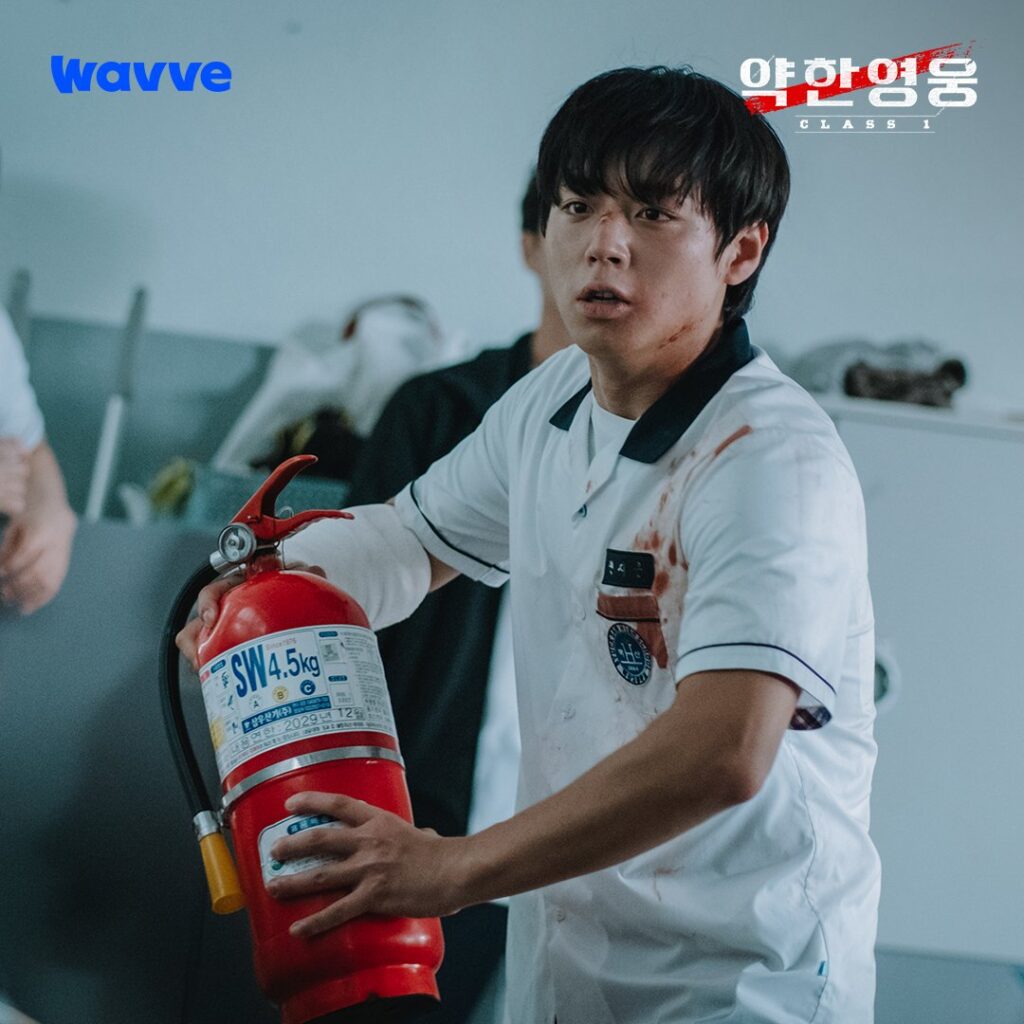
Quick Update: Why I’m Writing Instead of Making Videos
Hey everyone! So my Weak Hero obsession might be cooling down thanks to CapCut 😂 They wiped out my usual dubbing voice, and using my real voice is… let’s just say if my workplace caught wind of my K-drama deep dives, I’d rather vanish into outer space lmao !! So while I hunt down a new voice option, you’re getting blog posts instead of videos! 🙏
Lately, a subscriber and I have been joking that we might be getting too obsessed with TV show characters. Well… 🤔 I think that’s exactly what director Yoo Soo-min was going for.
He actually went undercover in teenage chat rooms—fashion groups, study circles, health forums, even depression support groups—disguising his age and name to figure out how real teenagers actually think and feel. What caught him off guard the most was discovering how many kids were genuinely seeing mental health professionals and getting prescribed sleep medication because of stress.
As director Yoo Soo-min shared in an interview:
Teenagers’ open chat rooms are incredibly diverse—fashion rooms, study rooms, health rooms, depression rooms, and so many more. I disguised my age and name to enter those spaces, keeping my words to a minimum while participating (laughs) What I realized through this was that while trends may change, the essential nature remains the same as when we were young. What surprised me, on the other hand, was the depression rooms. More kids than I expected were visiting psychiatric clinics and getting prescribed sleep medication. I was shocked to discover that so many young people are living under stress. (Source: [TF Interview] Director Yoo Soo-min’s Growing Pains Created the Growth of ‘Weak Hero’)
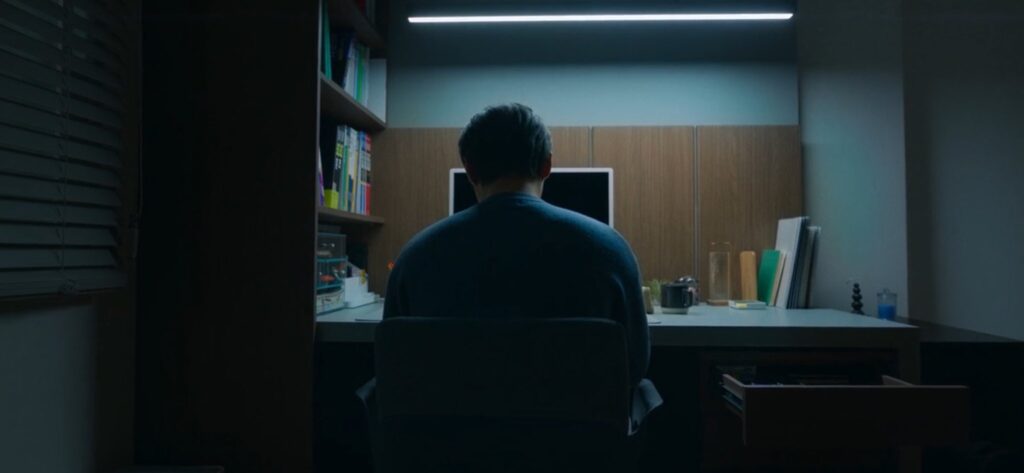
The difference in Si-eun’s room between Weak Hero Class 1 and Class 2 is striking. Everything has become so barren and lifeless, now bathed in an eerie blue light with heavy shadows creeping in. The production team does an incredible job of showing just how cold and empty Si-eun’s world has become after losing Su-ho…
Look at Si-eun in S2… He can’t fall asleep even past 3 AM, suffering from insomnia for nearly a year since Su-ho fell into a coma. You can also tell that his studies have been neglected. Honestly, even if someone said Si-eun had lost his mind, I think I’d understand it completely…
So when we’re obsessing over these characters’ psychological journeys? We’re responding exactly as intended—these aren’t just fictional teenagers, they’re based on real teenage experiences and struggles that the director researched extensively.
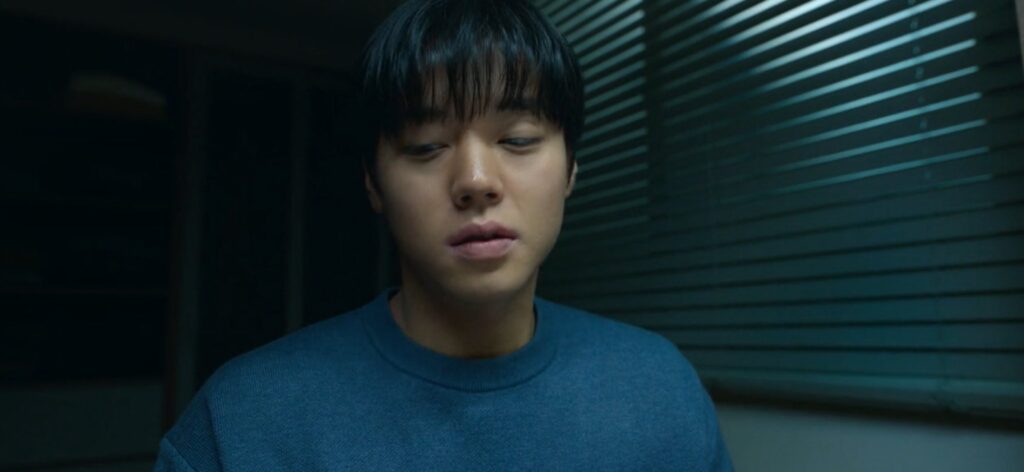
He can’t fall asleep even past 3 AM…
I also wanted to address something that came up in a meaningful discussion with one of my most thoughtful commenters, Elaine, who consistently leaves critic-level analysis that goes beyond just consuming this drama and forgetting about it. She brought up a really important point about Si-eun not “longing for violence” in S2:
Oh. I disagree that Si-eun is longing for violence in S2. He’s actively trying to avoid it. But on the rooftop with Seong-je … well, there’s a lot to explain the intensity of that fight. There’s the adrenaline and panic from running to the scene to try to save Jun-tae who has no defence skills. And then there he is … this scary psycho guy who obviously wants to beat Si-eun severely. The guy who came out of nowhere to threaten and attack him, for no reason at all, in a museum bathroom. The guy who threatened a completely defenceless Su-ho at the hospital.
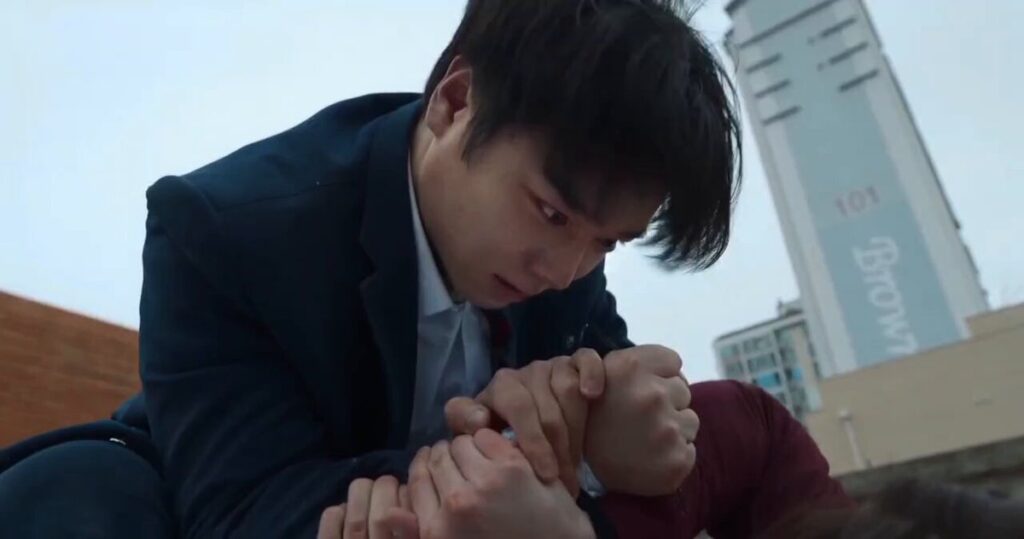
Si-eun is longing for violence…?
She makes such a valid point about how Si-eun was actually trying to avoid violence and only escalated when he had no choice, especially after seeing Jun-tae in danger and facing someone as skilled and unnerving as Seong-je. Her analysis continues:
So, yes, it’s quite a violent fight … but did Si-eun really have a choice about raising his intensity? Respectfully and all … I don’t think so. I agree that his trips off the deep end in ep1 and ep8 of s1 were really hard to watch … disturbing. But s2 is different. I think he knows what he’s fighting for in s2 and it’s to end the cycle that he and his new friends are caught up in.
And then she ended with something that made me laugh because it’s so relatable: “Gotta admit, though, that I’m a little worried about myself being so defensive on the part of a TV character “
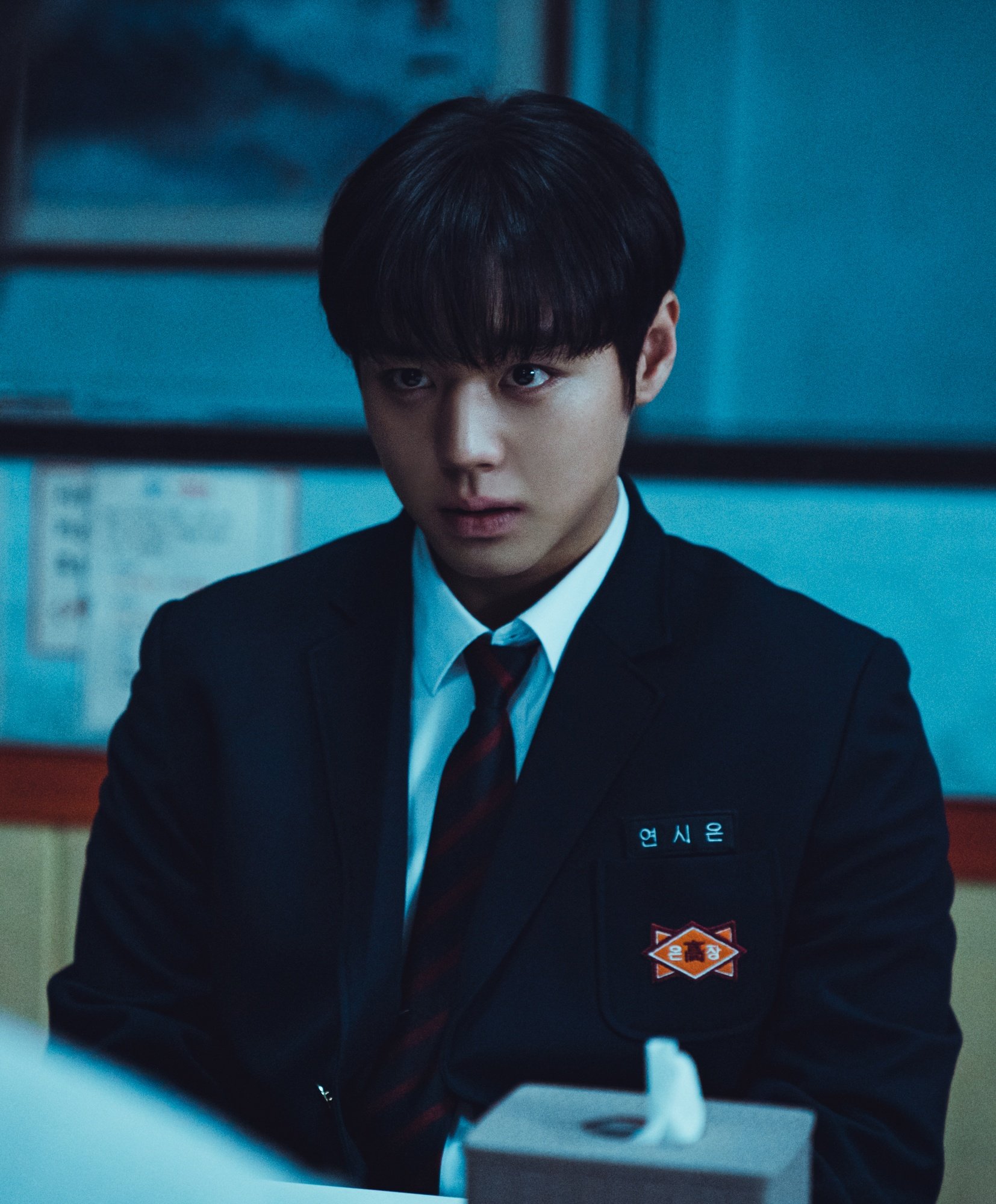
My response was basically agreeing that we’re all getting a bit too invested, but that’s exactly what makes this show so brilliant. As I told her: “I really think this drama has had a lot of positive influence on us. There’s a Korean joke… ‘A savior who came to destroy my daily life’ that’s exactly the vibe Weak Hero has 😂”
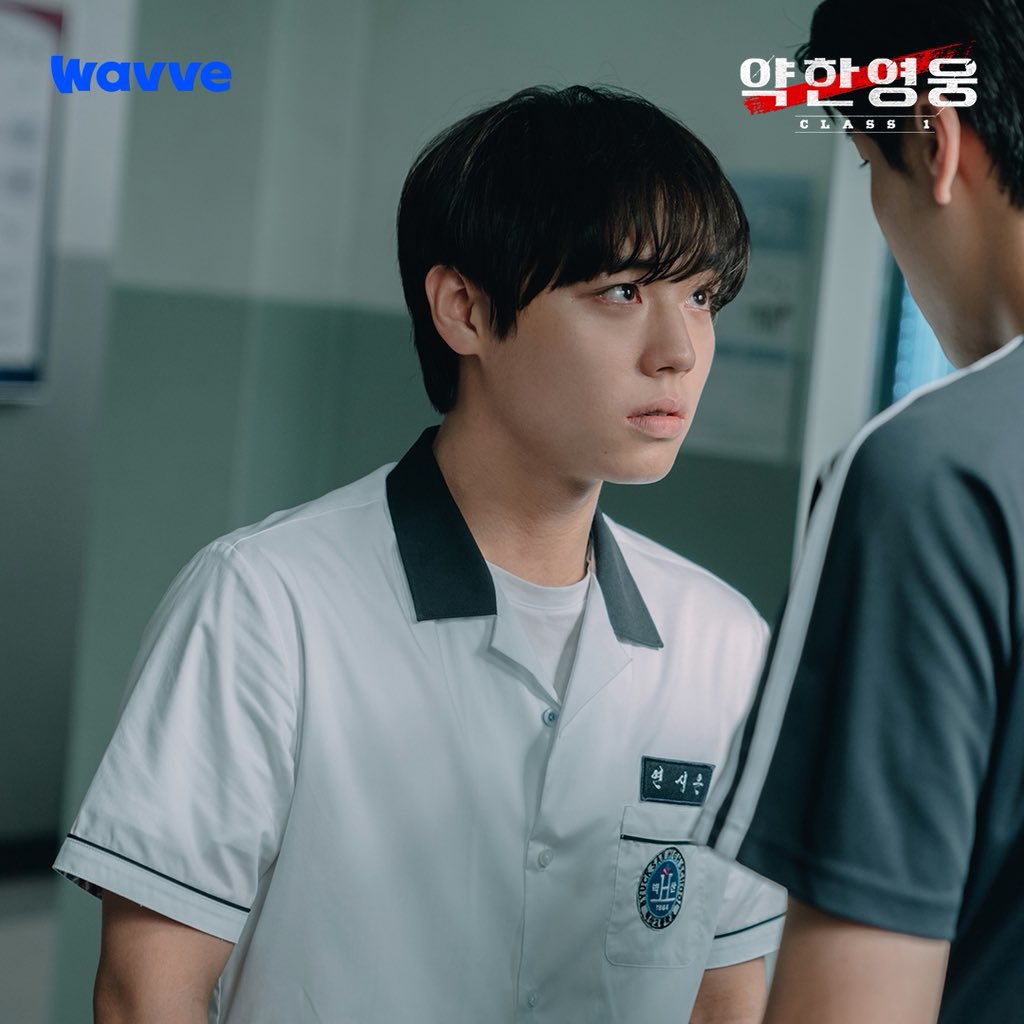
Su-ho as Si-eun’s Masterpiece? A Deep Dive with My Youth Counselor Friend
So I was scrolling through YouTube comments on a Weak Hero analysis video when this comment from @zeynepo**** stopped me in my tracks:
I’ve always thought it’s totally normal for his personality. Si-eun is a perfectionist and very hard-working person. He builds something, he sacrifices a lot and when it’s damaged, he gets crazy. First he was up to college. When Yeong-bin said “Don’t tell teacher, our notes will affected by it” he kept silent. He asked them to stop, tried his best and after all that he had one scratch on his work, he went crazy. Then he had friends; he asked Beom-seok to stop. He got beaten up, sacrificed. And now it’s not only a scratch, it’s his all he has… His explosion is not only bc he cares too much for Su-ho but he tried so hard to protect his new “masterpiece” I see it like that

This comment hit me so hard that I casually brought it up during lunch with my friend who works in youth counselling. What followed was one of those deep, hours-long conversations about Si-eun’s perfectionist obsessions and how children who grow up without proper parental love develop these incredibly rigid coping mechanisms. My friend had so much professional insight about attachment disorders and how they manifest in teenagers that I knew I had to write about this.
She asked me to think back to my own school days, especially when I was around Si-eun’s age. It’s been so long that I’d almost forgotten, but many of my friends back then weren’t getting the attention they deserved from their parents either. It wasn’t necessarily because their families were struggling financially…
For convenience, let me call her ‘Christine.’ Christine’s parents had divorced when she was young, and her mother remarried. Both her stepfather and mother were incredibly successful in business, but they couldn’t give Christine the attention she needed because they were too busy making their ventures work.
I was often invited over to Christine’s place after school. Even when I wanted to head home, Christine always wanted to bring friends back to her big house. We’d have sleepovers constantly, but the closer I got to Christine, the more I could sense how desperately she craved affection. Honestly… it started becoming a bit overwhelming. I could tell she’d read meaning into my smallest words or actions.
Actually, Christine’s supposed best friend was Rebecca (again, using a pseudonym for privacy). They were so close they’d exchange secret diaries, but from what I remember, their friendship fell apart before graduation when Rebecca got a boyfriend…
This memory came flooding back while I was talking with my professional friend about all this.
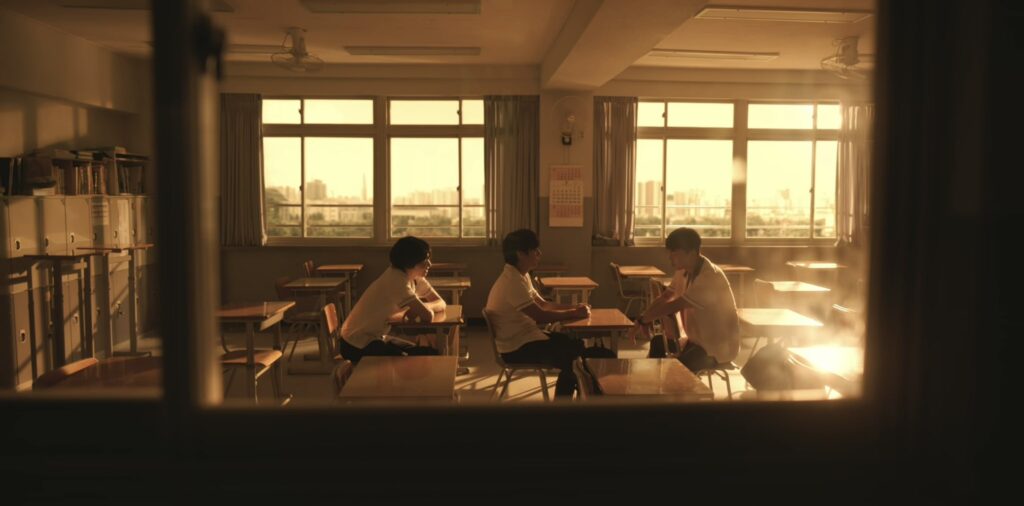
When my professional friend heard this story about Christine and Rebecca that had been tucked away somewhere in my memory, she said “That’s exactly it!” and tried to explain it in simple terms. Children who feel deprived of the attention and love they should rightfully receive from their parents tend to become overly dependent on friends during their school years, placing enormous expectations on those friendships. As a result, these relationships often snap like chopsticks breaking suddenly.
As I listened to my friend’s explanation, certain aspects of Beom-seok came to mind as well. I’ll circle back to this connection later in the post.
Coming back to that reader’s comment, I have to say I’d also picked up on Si-eun’s perfectionist tendencies while watching the drama. I could definitely agree with the point that he probably feels a deep sense of stability and self-worth when he sees those correct answers—those perfect circles—on his tests. But there’s so much more to unpack here, especially when we dive into the psychological layers that make Si-eun’s character so devastatingly complex.

I have to say I’d also picked up on Si-eun’s perfectionist tendencies…
The Psychological Foundation: Childhood Trauma and Attachment Issues
Another commenter, Elaine, dropped some serious psychological insight that made everything click:
In the subtitles that I saw (for that scene where little Si-eun overhears his parents fighting)? They were clearly arguing about whether or not they should have had him and it was obvious that they were both regretting the decision. He had broken his arm. Dad was asking mom where she was when it happened. She shot back that she agreed to have him because they were going to raise him together. And dad said he hadn’t known that the boy would get hurt so much.
Imagine being a little kid and hearing your parents basically say they regret having you. That’s not just emotional neglect—that’s the kind of rejection that fundamentally rewires how someone approaches relationships for the rest of their life.
Little Si-eun would have been convinced that he was unwanted, (and a disappointing, inconvenient problem) after hearing that, so he goes to his room, locks the door and does math. Which became his way of dealing with the fact that his parents didn’t want him.
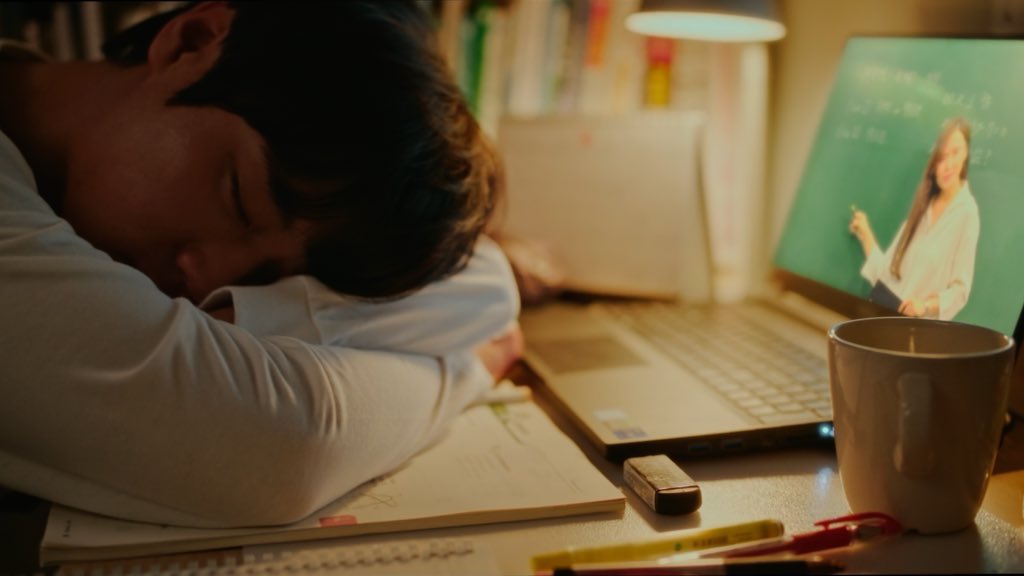
But my biggest wonder is whether or not a medical team would decide that he was neuro-divergent and belonged somewhere on the autism spectrum. Isolating himself. Not communicating. Focusing his whole life on one thing. Becoming overwhelmed by outside stimulus and/or internal floods of feeling… these could definitely be signs that he is on the high-functioning side of the autism spectrum.
Think about it. Si-eun shows hyperfocus on academics as his single special interest, experiences sensory overwhelm leading to fainting episodes, struggles with social isolation and emotional regulation, and has rigid routines with extreme distress when his own established rules get disrupted..
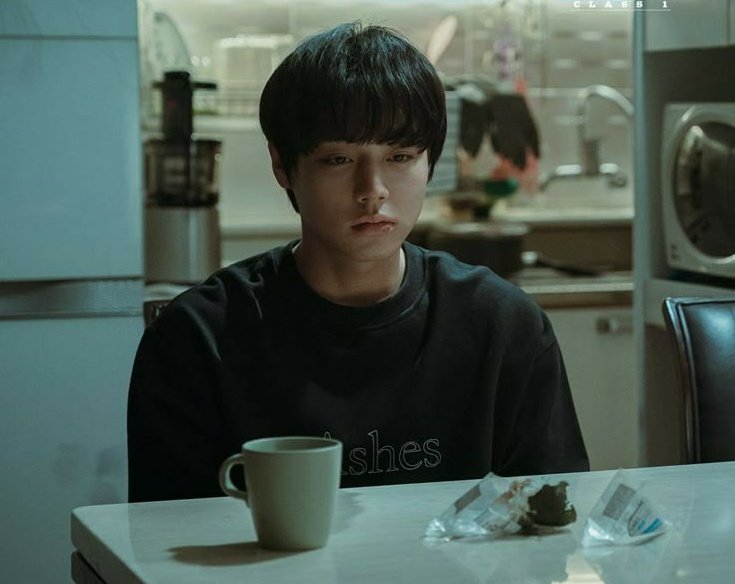
Actually… well… if you have any interest in teenage issues or if you share emotional layers with Si-eun’s childhood—even if not exactly similar—there are plenty of scenes in the drama that explicitly, almost heavy-handedly, show us that Si-eun’s attachment relationship with his parents isn’t just poorly formed, but that they’ve essentially emotionally neglected him. The drama practically shouts this in our ears through its direction.
For instance—though many viewers probably brushed past it without much thought—when Si-eun shows his father the gold medal from the school math competition, his father immediately responds with “This is the flavor I live for! (This is what makes life worth living!)” (Korean has so many expressions involving ‘flavor’ and ‘food’… I’ll talk about this idiom later).
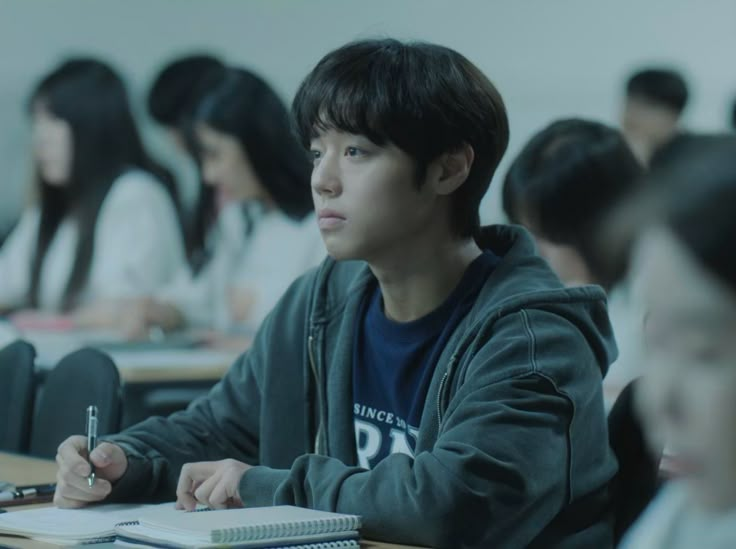
“This is the flavor I live for!“
At first glance, this might look like pride in his high-achieving son, and of course it is pride. But the thing is, he’s no longer truly moved by Si-eun’s academic achievements—he takes them for granted, almost as if they’re expected. Based on his son’s excellent grades, he’s convinced himself that Si-eun isn’t facing any problems, or maybe he’s so obsessed with his own career that he’s internally pushed himself to believe this.
The thing is… this kind of parenting would have been programmed into Si-eun like a mathematical formula: “If I get 100%, my parents love me 100%. If I get 90%, they only love me 90%.” So when Yeong-bin’s gang interfered with him, it wasn’t just typical school bullying—for Si-eun, it was like losing his only lifeline to his closest people, the only way he believed he could receive their affection and attention.
And then Su-ho comes knocking at the door of his life, and this boy, naturally starved for affection, ties that lifeline around Su-ho’s waist. Of course, he probably had no idea what kind of emotional tidal wave he was sending Su-ho’s way…
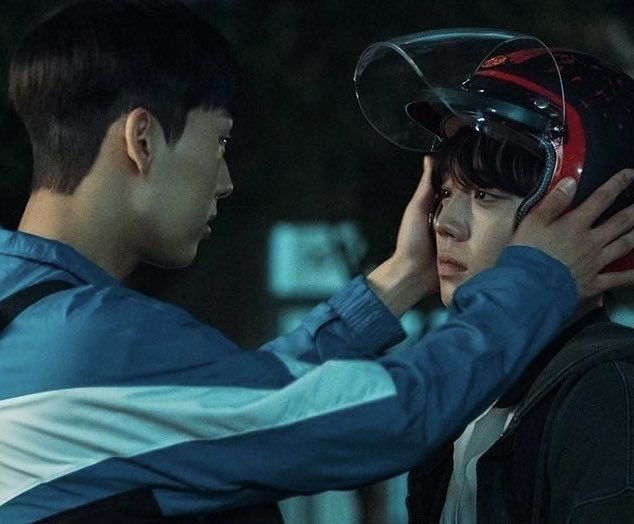
So over the weekend, I watched Weak Hero Episode 1 with this professional friend and asked for her insights on Si-eun’s extremely violent behavior toward Yeong-bin’s group. Her analysis was mind-blowing:
I suppose… Si-eun’s inherent anger stems from attachment disorders with his parents, which led to his world-hatred, self-hatred, and social withdrawal. This is the part he understood with Beom-seok, too. Academic grades were the only way to prove his self-worth, and those perfect circles on his test papers meant stability and love. When Yeong-bin disrupted that peace, it caused Si-eun to feel rage and terror—a fear close to death, threatening his ‘masterpiece’ that he had established through perfection, which was his grades. That’s why he fought back like a cornered animal.

When Yeong-bin disrupted that peace, it caused Si-eun to feel rage and terror—a fear close to death, threatening his ‘masterpiece’ that he had established through perfection, which was his grades. That’s why he fought back like a cornered animal.
Su-ho’s Arrival and Si-eun’s First Love
From this chapter on, I’ll be sharing the thoroughly personal insights that my friend analyzed for me. I listened to her interpretation with genuine fascination and seriousness. There were definitely parts I could relate to, and from here on out, some material might make certain readers uncomfortable, so I think I’ve given you fair warning about potential triggers. Let me share what she told me.
As that subscriber mentioned in their comment about Si-eun’s long-cultivated “masterpiece” in his own castle, my friend agreed completely. To be honest, I couldn’t understand 100% of the professional psychological terminology she used, but I roughly grasped what kind of analysis she wanted to convey to me.

Su-ho opens that tightly shut front door when he mistakenly delivers to the wrong address, and as director Yoo Soo-min revealed, this borrowed from the relationship between Demian and Sinclair… If Su-ho hadn’t mistakenly found his way to Si-eun’s door… would he have been able to break out of his shell?
Of course, the appearance of Su-ho, Si-eun’s “little hero,” was a gift from God for Si-eun… This is how Su-ho and Beom-seok—probably this boy’s first friends—appeared like a miracle in his life. So the attachment, stability, and love that his parents couldn’t provide, he experienced all at once in that short period. Calling it a flood wouldn’t be enough—my friend also described it as being like “waves.”
Actually, among the kids my friend counsels, she told me it’s almost a daily occurrence to hear concerns about getting swept up in uncontrollable emotions during first love experiences or relationships with opposite-sex friends, or sometimes same-sex friends, leading to academic difficulties or imagining extreme choices when they feel their object of affection growing distant… (I was genuinely shocked at this part… Am I that clueless about teenagers? Was I like that when I was a teenager? It made me reflect…)
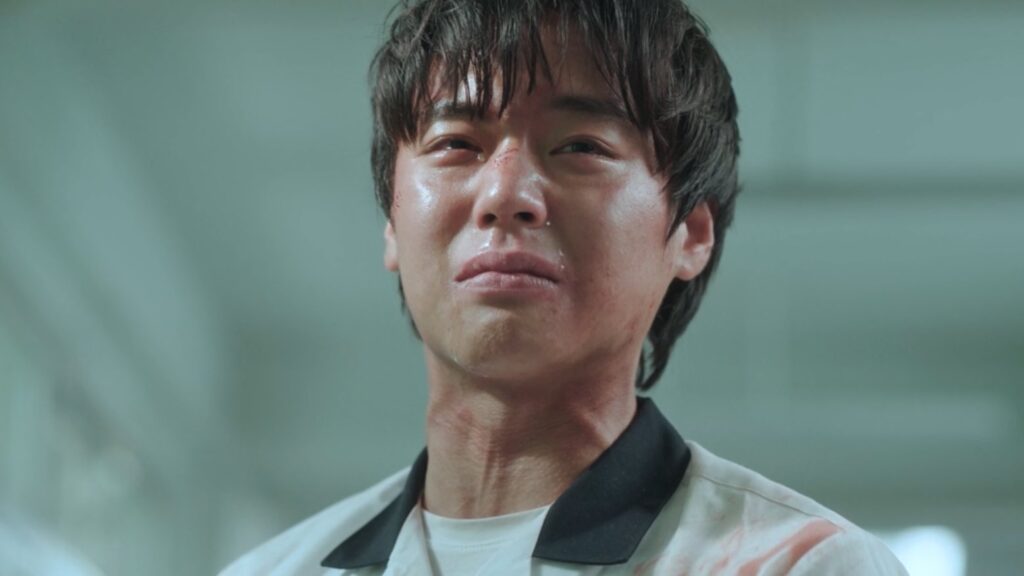
So my friend said… While it was good that Si-eun broke out of his shell, that emotional flood was so overwhelming that the relationship between Si-eun and Su-ho was too intense to call friendship. More precisely, because the emotional range Si-eun felt toward Su-ho was so intense and mixed with so many different feelings, if this relationship had existed in reality as we commonly see, there definitely would have come a point where Si-eun became overly obsessive or dependent on Su-ho, my friend said. And she matter-of-factly told me this is the path most teenagers take when they feel this level of deep attachment to opposite-sex or same-sex friends.
So from my friend’s perspective… it’s likely that at some point, just as Si-eun treated his grades like a lifeline, making sure they never got disrupted, broken, or scratched, his perfectionist tendencies and obsession would have reached toward his other lifeline—his friend.
So my friend added that, from a realistic counselor’s standpoint, looking at just the surface of the attachment Si-eun showed toward Su-ho, it could never be called healthy friendship (though of course he cherished Su-ho and cared for him enough to take physical violence on his behalf, from my friend’s perspective, this also felt closer to desperate behavior from someone who had never experienced stable attachment before, preparing for the collapse that would come if that precious person disappeared).
The Necessary Destruction: Why Class 1’s Ending Actually Gave Si-eun a Real Growth Opportunity
She said the direction was brilliant in terms of why Si-eun had to go through the trauma of losing Su-ho in the drama. It was inevitable, and it was a brilliant directorial device because Si-eun needed real growing pains to mature properly.
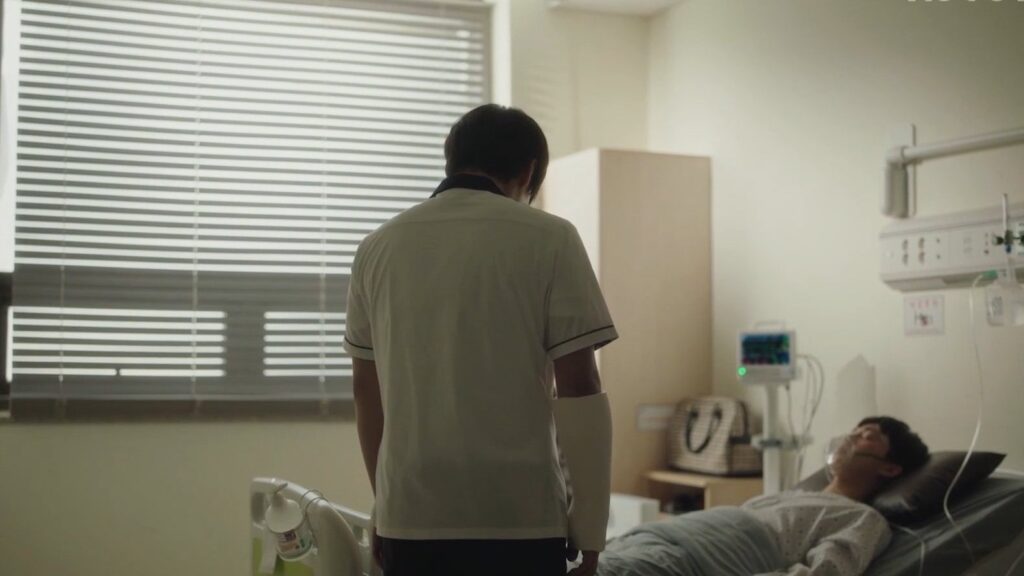
Si-eun was completely shattered at the end of his first year, but thanks to that, he was able to break out of the shell that had been protecting him and grow on his own. In his second year, Si-eun, who had been living almost emotionally dead, met Ba-ku, Go-tak, and Jun-tae at Eunjang High School, and I think his friendship with them looked much more desirable and healthy… The fact that he ultimately let go of Beom-seok’s hand on that ring that had been consuming him and escaped suggests that he built healthy friendships with these new friends and also escaped from deep mental problems himself.

The fact that he ultimately let go of Beom-seok’s hand on that ring …
So in other words, the great collapse Si-eun experienced from losing Su-ho in Season 1 wasn’t simply tragedy, but the psychological growth Si-eun had to go through—like a bird that broke out of its shell needing to pass through what’s necessary to fly. He had to learn to live without his coping mechanisms (perfect grades, Su-ho as deep emotional attachment) to truly grow into an adult.
In other words, if Si-eun’s inherent violence was triggered every time his object of deep emotional attachment went wrong or every time his perfect grades were threatened, he never could have grown into an adult…
So when Su-ho woke up and saw Si-eun coming with friends behind him, saying “It looks good”—I realized what that meant. He was praising and congratulating Si-eun for becoming a proper bird that could fly on his own. Actually, Su-ho’s original line was supposed to be “Our Si-eun has grown up.”
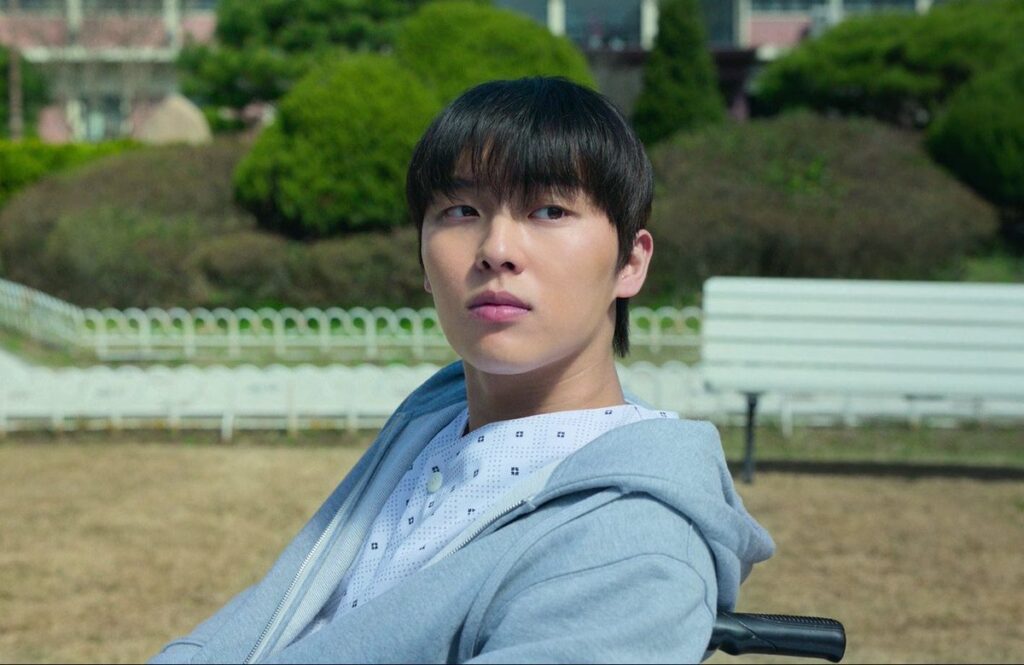
“Our Si-eun has grown up…”
Going back to the original story about Si-eun being a perfectionist, this pattern appears consistently throughout his entire character journey. Academic perfectionism gets threatened by Yeong-bin, leading to violent explosion. The friendship that brought flood-like emotions, like first love, faces multiple threats and eventual loss, ultimately leading to complete psychological breakdown. But in his second year, he shows himself learning imperfection and developing healthier relationships.
Every time Si-eun created something he considered his “masterpiece”—whether grades or people—he tried to protect it violently because he was completely dependent on maintaining that perfection.
If he kept protecting his masterpieces by scarring his own body and shedding blood, he never could have grown, and that’s not what the people he cares about would want for him anyway.
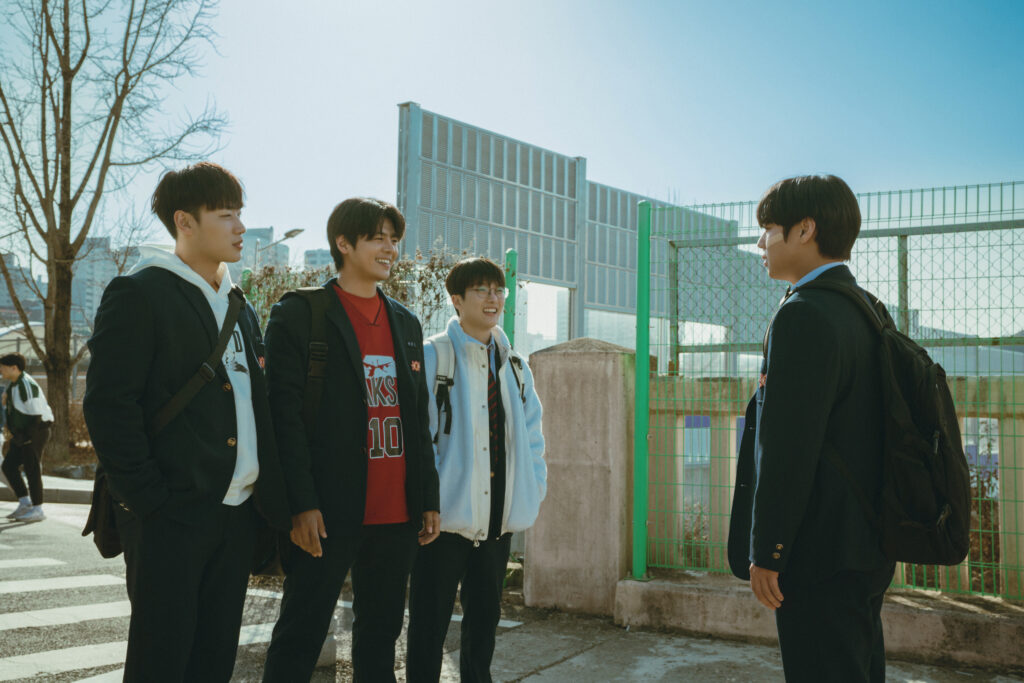
Conclusion: The Hope in the Healing
What ultimately makes Si-eun’s story beautiful isn’t the revenge or the violence—it’s the boy’s growth.
Season 2 concludes with him learning to form healthy human relationships and friendships with Ba-ku, Go-tak, and Jun-tae, finally saying goodbye to Beom-seok on the ring that had kept him awake through sleepless nights, and truly building emotional resilience with his own strength and help from his Eunjang friends.
Si-eun has grown enough to convince himself that he and his new friends can now build something sustainable together.
The messy, imperfect, but deeply human ability to truly love someone and be truly loved without losing himself in the process, even when problems arise with those lifelines he wants to protect so dearly, without revealing violence and losing himself in the process.
What do you think? Does this psychological analysis change your perspective on Si-eun’s character? Let me know in the comments—I love geeking out about the deeper layers of Weak Hero’s storytelling!
🔗 Related Posts by Character & Language
📚 Si-eun (시은) Analysis
English Posts
- Si-eun’s Episode 8 Revenge: Why the “Implausible” Critique Completely Misses the Point
- Why Si-eun is a Character Magnet: The Psychology Behind Weak Hero’s Most Compelling Relationships
- Si-eun’s Hidden Violence: An Exploration
- Si-eun’s Revenge Debate: Core Fan Comments Compilation
🥊 Su-ho (수호) Analysis
English Posts
- Su-ho’s Lost Comedy Gold: The Wordplay That Made Weak Hero Fans Fall in Love (But English Subtitles Missed Everything)
- The Untold Story of Su-ho and Beom-seok: Why Their Friendship Was Doomed from the Start
Korean Posts
💔 Beom-seok (범석) Analysis
English Posts
- When Dreams Become Prison: Analyzing Beom-seok’s Boxing Ring Appearance in Si-eun’s Dreams
- When Subscribers Become Psychology Experts: Two Brilliant Takes on Why Beom-seok Destroyed Su-ho in That Ring
- Beom-seok’s Obsession with Su-ho: The Tragic Psychology Behind Weak Hero’s Most Complex Relationship
⚡ Seong-je (성제) Analysis
English Posts
🤝 Character Dynamics
English Posts
- Su-ho and Si-eun’s Relationship: When Fans Ask the Hard Questions About Weak Hero’s Most Debated Bond
- Understanding Yeong-i: The Character Who Reveals Everything About Weak Hero’s Heart
- Was Yeong-i Added to Tone Down the Bromance? When Subscribers Drop Literary Masterpieces in My Comments
- Jun-tae’s Japanese Mystery and the Heartwarming Go-tak Friendship in Weak Hero Class 2
🎭 Behind-the-Scenes & Analysis
English Posts
- Weak Hero Class 1 Script Book: Behind-the-Scenes Secrets That Will Change How You See the Show
- Script Book vs Final Cut: The Dream Scene That Made Us All Cry
- The Complete Behind-the-Scenes Story of Weak Hero Class 1 – Answering Subscriber Questions
- Weak Hero Class Change Video Explanation: Actors Switching Roles
- Weak Hero Deleted Scene Delivery! Beuksan High’s #1 Taking Down Bullies
🌍 Fan Community & Cultural Analysis
English Posts
- Weak Hero Fans Are Going INSANE and I’m Here for It: The Comments That Broke My Brain
- The Joy of Global Connection: Discussing Weak Hero’s Most Complex Relationships with Fans Around the World
- When International Fans Decode Korean Bromance: Why Weak Hero Reads as BL Overseas
- Three Questions That Reveal Weak Hero’s Hidden Korean Realism
- Why These Three Friends Always Sit Together During Exams (And Other Translation Secrets)
Korean Posts
📊 Quick Navigation by Interest
⚡ Character Dynamics:
- Su-ho and Si-eun’s Relationship
- Beom-seok’s Obsession with Su-ho
- When International Fans Decode Korean Bromance
🧠 Psychology Deep Dives:
- When Subscribers Become Psychology Experts
- Si-eun’s Episode 8 Revenge
- Why Si-eun is a Character Magnet
🎬 Behind-the-Scenes Content:
🌐 Translation & Cultural Context:
⚠️ Site Policies & Legal Information
✅ About JennieKdrama.com: This blog provides personal fan analysis and reviews of K-dramas, focusing on school action series like ‘Weak Hero.’ All content represents individual opinions and interpretations from a fan perspective, unrelated to official production teams.
⛔️ Copyright Disclaimer: All drama footage, images, and references belong to their respective copyright holders including streaming platforms and original creators. Materials are used minimally for educational criticism and analysis with no intention of copyright infringement.
🚫 Privacy Policy: This site follows standard web policies and does not directly collect personal information beyond basic analytics for content improvement. We use cookies to enhance user experience and may display advertisements.
📳 Contact: For questions or concerns, please use the comment sections or contact forms provided. This is fan-created content respecting all original copyrights – we are not responsible for any losses or damages resulting from our content interpretations.

Leave a Reply to jennielee Cancel reply